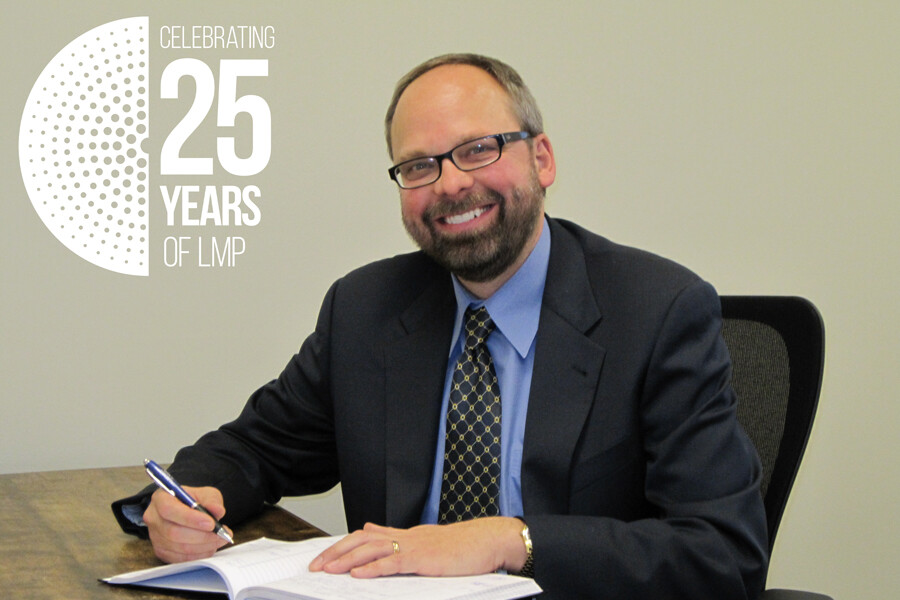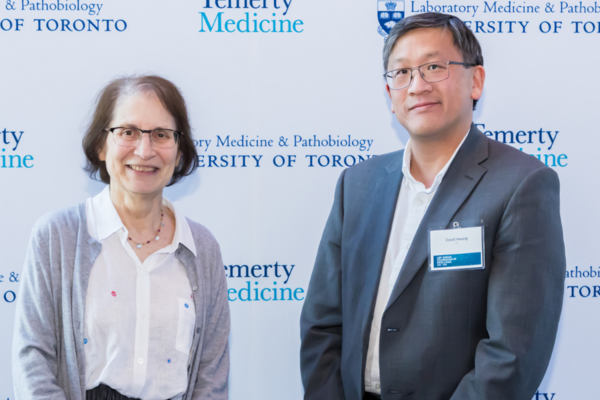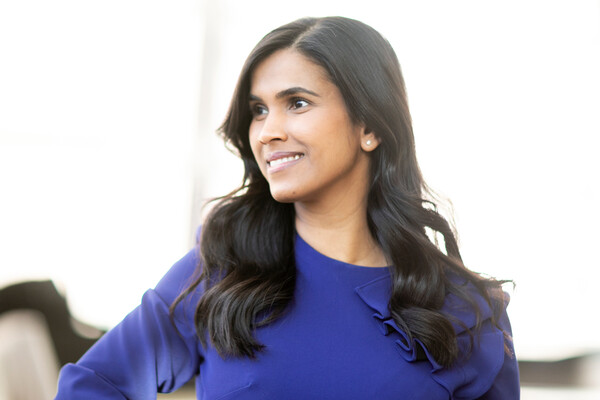Community and collegiality: the cultural evolution of LMP

This is the second in our series of Chairs interviews to celebrate 25 years of LMP. Visit the celebration web page to find out more.
“My opportunity was to leverage partnerships and enhance what was already established to take our performance up to an even higher level of impact and distinction,” says Dr. Richard Hegele on his role as Chair in the Department of Laboratory Medicine and Pathobiology.
Following in the footsteps of founding Chair, Dr. Avrum Gotlieb, Dr. Hegele became the second Chair of LMP in 2009.
He trained as a Pathologist, completing his residency in Anatomical Pathology at U of T, before moving to Vancouver where he developed his career – becoming Professor and Chair of the Department of Pathology and Laboratory Medicine at the University of British Columbia (UBC).
“It was a very difficult decision to leave UBC where I’d been for 20 years,” he explains, ”but people go to Toronto for a reason. The opportunity to be part of one of the very top and well-resourced universities in the world, to engage and collaborate with some of the most internationally-renowned hospitals and institutes in advancing the academic mission, and expanding the departmental reach with the creation of the Mississauga Academy of Medicine and other exciting initiatives, was compelling. All of a sudden, I found myself signing on the dotted line and moving to Toronto!”
Having last been at U of T as a resident, it could have been daunting to return as Chair but “it speaks to the overall calibre of people within the department that my former teachers were exceptionally welcoming and supportive of me. This endorsement was critical and very much appreciated,” says Hegele.
The merger that created LMP had taken place a decade earlier, but there was still work to be done to bring the department together. “Dr. Gotlieb did a great job of shepherding all these diverse constituencies and bringing them under a common rubric of LMP. One of my first tasks was to increase the feeling of collegiality and community so I had to listen and understand where people were coming from”.
One thing that struck Hegele, and he sought to communicate, was the incredible advantages LMP brought as an academic department.
“I always used to tell Dean Catherine Whiteside (Dean of the Faculty of Medicine at the time) that LMP is the only “full-service” department in the Faculty, with the entire range of undergraduate, graduate, residency, diploma and continuing education programs. We have clinical practice in hospitals, scientists based in research institutes, and tenured faculty based on campus. No other department could claim that amount of diversity in its structure and operations: we were a microcosm of the entire Faculty of Medicine. This really helped people understand that through this diversity there were greater collaborative opportunities and ways of thinking more broadly than the pre-merger structures allowed.”
Through developing a strategic plan for LMP, Hegele sought to advance the culture and build the community. Research became a central pillar “allowing individuals to rethink the creation of new knowledge” which enabled new conversations and collaborations.
It was also important to him to have a way of recognizing everyone’s contributions in LMP. “I wanted to ensure that anyone in the department, whether they were an undergraduate student or a tenured faculty, or a busy clinician in a hospital setting, had a legitimate way for their role and contribution to be recognized. One thing I’m proud of in my tenure as Chair was in enhancing the role of creative professional activity (CPA) as a mechanism of academic promotion for hospital-based clinical faculty”. This sparked a highly successful structure, led by Dr. Catherine Streuker, that supports faculty through the promotion cycle at the University of Toronto.
As part of the focus on building an LMP identity, a contest was held to come up with a tagline for LMP. Something that could explain succinctly, and uniquely, “what we do and why we do it”. Over 200 members of LMP entered the competition in 2012 which was won by an undergraduate Specialist Program in Pathobiology student, Ghassan Awad Elkarim for his ‘Investigating Disease. Impacting Health’. Ghassan commented, “LMP is not only a program I am enrolled in, but also a family I am happy to be part of!”
Alongside the efforts in evolving the LMP culture, opportunities developed that “were unique and the atmosphere and appetite was there to be able to seize it and work with it.”
Such an opportunity was transforming Forensic Pathology in Canada from a civil service to an educational institution that now helps train Forensic Pathologists from many countries. LMP created Canada's first Royal College accredited training program in Forensic Pathology which, according to Hegele, provided “an opportunity to really imprint an academic dimension to this field”.
Big data is the precursor of what is today artificial intelligence and precision medicine, and under Hegele’s tenure leadership helped LMP lead the way into the digital age. “This was something that required a major transformation, not only within the department but also in the clinical practice of laboratory medicine. As a result, we set ourselves up to be leaders of the digital age for our discipline”.
Part of that included the creation and launch of the LMP Digital Laboratory Medicine Library: a comprehensive collection of digitized medical images. Previously slides were restricted to whoever had physical access to them and hospital laboratories often had to make many slides from each sample. “We wanted to democratize it and have something in perpetuity everybody could access and benefit from the academic opportunities associated with the case”. This was also a mechanism to engage with hospital partners, reducing resources used in creating multiple slides, and benefit learners at all levels.
Nurturing a community of engaged scholars and learners through enhancing the collaborative research mission and university reward and recognition, reaped its own rewards as it began to build momentum. “People started wanting to become part of LMP – we would get approached by all sorts of people seeking a cross-appointment, or to somehow be part of what we were doing. We attract a high caliber of people to LMP, so we worked tirelessly to create an environment conducive to people's best performance, to enhance the level of accomplishment and distinction”.
All these achievements made Hegele proud of where LMP was going as he then moved on to become Vice Dean of Research and Innovation in the Faculty of Medicine in 2016. The collegiality and atmosphere at LMP were developing to provide the right atmosphere for continued excellence.
View the History of LMP timeline! (PDF)
Read the interviews with the Chairs of LMP:



